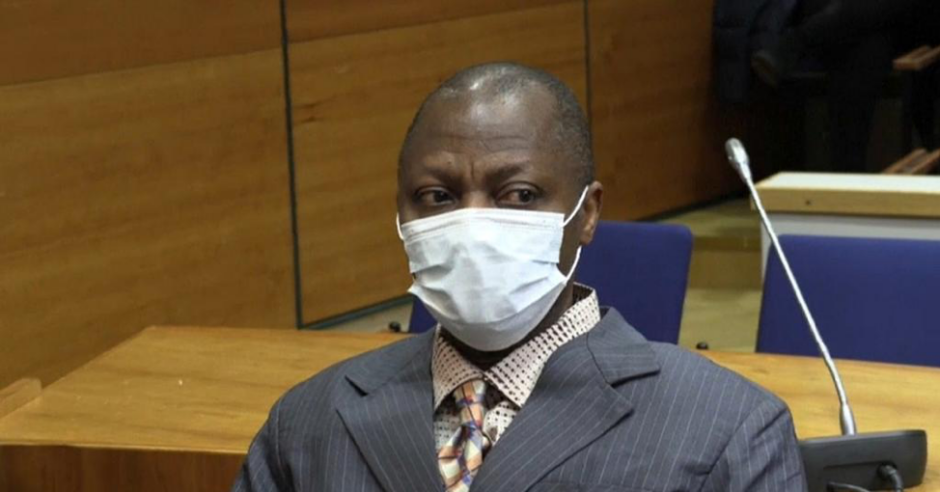
Sierra Leonean rebel leader, Gibril Massaquoi, who is standing trial in Finland for alleged war crimes and crimes against humanity in Liberia, has been released from prison ahead of the verdict in his case, expected in coming months.
By Anthony Stephens with New Narratives
Massaquoi’s charges include rape, ritual murder and recruitment of child soldiers, which prosecutors say he committed during Liberia’s second civil war—charges he denies.
“Massaquoi has been imprisoned for approximately two years, which can be considered an exceptionally long period,” the Pirkanmaa District Court said in a statement on Wednesday.
The Court added: “Moreover, an exceptionally long period of almost 20 years has already elapsed since the alleged acts.”
Presiding Judge Juhani Paiho said in a WhatsApp message that his Court acted on the instructions of the Finnish Supreme Court.
“The Supreme Court in Finland has previously issued rulings that the general rule is that the accused should be released to await the verdict. He has been in detention for two years now. Possible crimes were committed almost 20 years ago. It was considered to be unfair to continue his detention taking into consideration human rights aspects… also we have to follow guidelines from our Supreme Court.”
The release of Massaquoi, 51, from prison will frustrate human rights campaigners. But Judge Paiho clarified that the decision to release him in no way reflected a decision on the part of the judges as to Massaquoi’s guilt or innocence. “This decision does not prejudice the coming verdict,” he said.
Judge Paiho said that Massaquoi is under no surveillance “He is not. So far, there has been no reason to have a risk of flight. Of course we can never say for sure. This was the assessment of the Court as a whole.”
Massaquoi served as an informant for the UN-backed Special Court for Sierra Leone, which prosecuted and sentenced former Liberian President Charles Taylor to 50 years in prison for aiding and abetting the rebels in the Sierra Leonean civil war, which killed an estimated 50,000 people.
The court found that Taylor supported the rebel group the Revolutionary United Front of Sierra Leone, with which Massaquoi he held several positions, including spokesman.
In exchange for his testimony Massaquoi was not prosecuted for his role in Sierra Leone and he and his family were relocated to Finland in 2008 in an arrangement with Special Court. But prosecutors there, working with two nonprofit NGOs – Swiss-based Civitas Maxima and its Liberian counterpart, Global Justice and Research Project – indicted him in March 2020. Massaquoi’s trial formally began in Finland in February 2021.
The Court heard testimony from dozens of witnesses in Liberia and Sierra Leone. There were two phases of the hearings in Liberia, and one in Sierra Leone, where proceedings were delayed when two judges contracted typhoid. The court then recessed and returned to Finland to hear additional witnesses.
Among the witnesses the court heard in Liberia were Massaquoi’s alleged victims, some of whom displayed scars on their bodies they claimed Massaquoi caused either personally or through orders to his soldiers.
Massaquoi is facing trial under Finnish law. He is the first Sierra Leonean to stand such charges for an alleged role in Liberia’s two civil wars between December 1989-August 2003.
Liberia is yet to legislate a court to try those accused of committing war crimes and crimes against humanity during the wars despite recommendations from the former Truth and Reconciliation Commission, local campaigners, the UN and international donor countries that it do so.
In October 2018, the US House of Representatives passed a resolution directing the country to establish the court and implement the TRC’s recommendations.
A year later, over two-thirds of Liberia’s House of Representatives also approved a resolution for the court.
In June 2021, the Liberian National Bar Association led a group of civil society organizations to formally present a bill to the Legislature on the matter.
But the Senate dashed hopes that the Legislature would approve the court when it, also in June 2021, urged President Weah to set up a transitional justice commission to review the TRC’s recommendations—a decision that angered justice campaigners, who said the move was a delay tactic that showed the Senate was not interested in ensuring accountability for war-time atrocities. One of the Senate’s most powerful members, Prince Johnson, would likely be among the first to be tried in a Liberian court.
President George Weah backed the Senate’s action. Justice campaigners claim it was to keep the votes of Johnson.
“I have taken due note of the advisement contained in the comprehensive report of the Honourable Senate aimed at bringing to closure the issues of reconciliation and justice arising from the Liberian Civil Conflict,” Weah said in a communication to the Senate in August 2021.
Weah, who backflipped on his earlier endorsement of a war crimes court before he became president, assured the body he would act on its suggestions. “I would like to assure you that I shall give these recommendations timely and due considerations,” he said.
The four judge panel in the Massaquoi trial is set to issue its verdict in March or April.
This story was a collaboration with New Narratives as part of the West Africa Justice Reporting Project.
